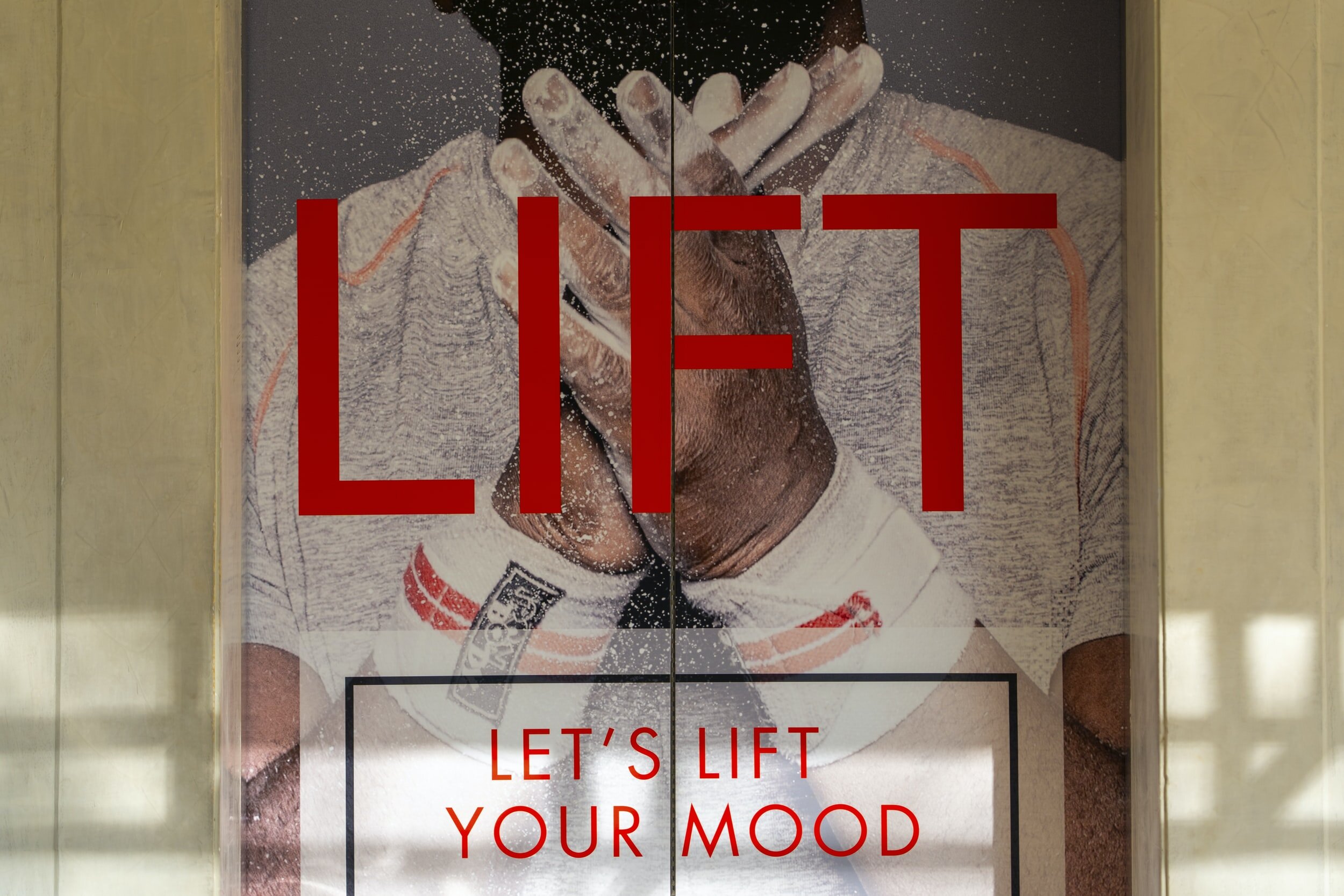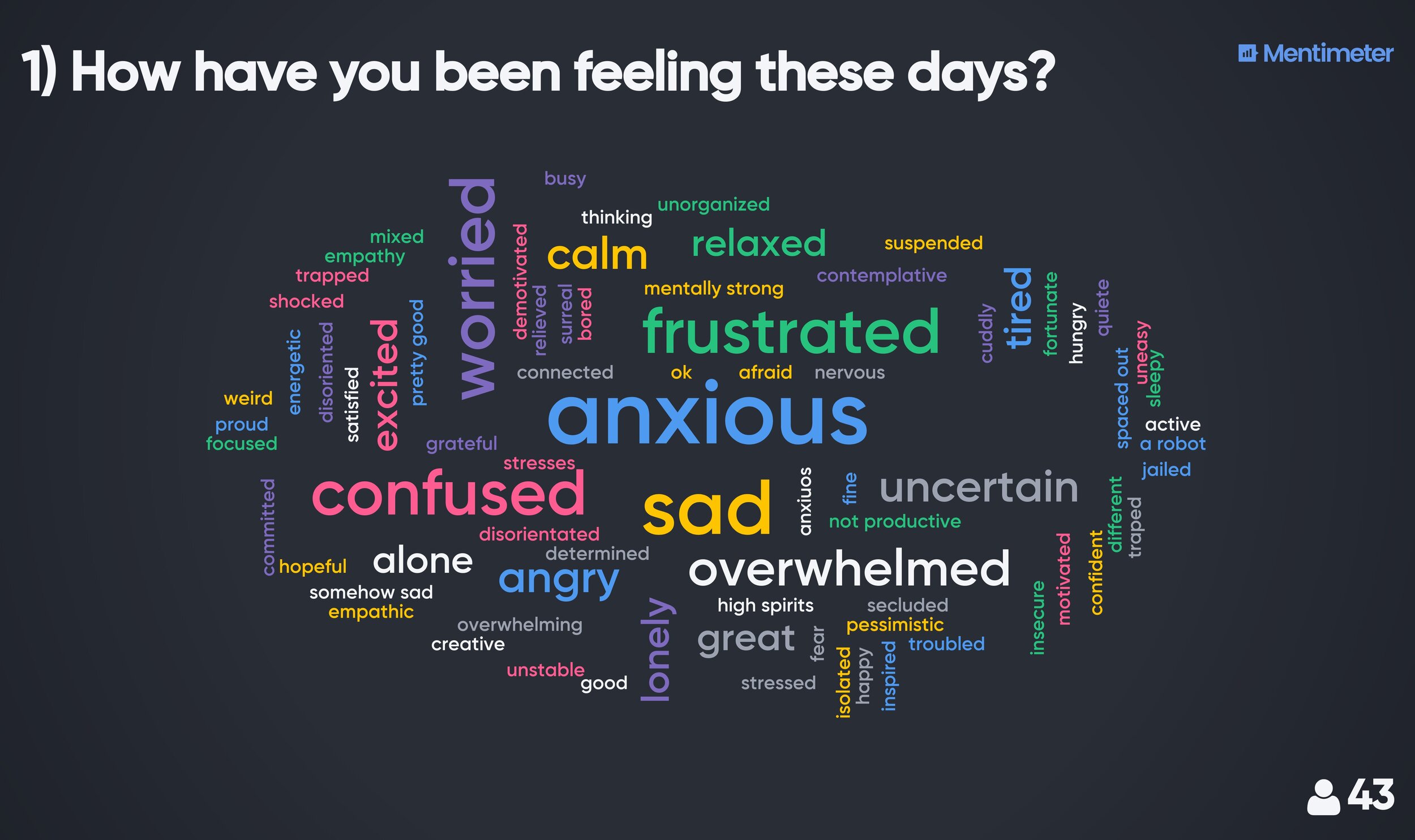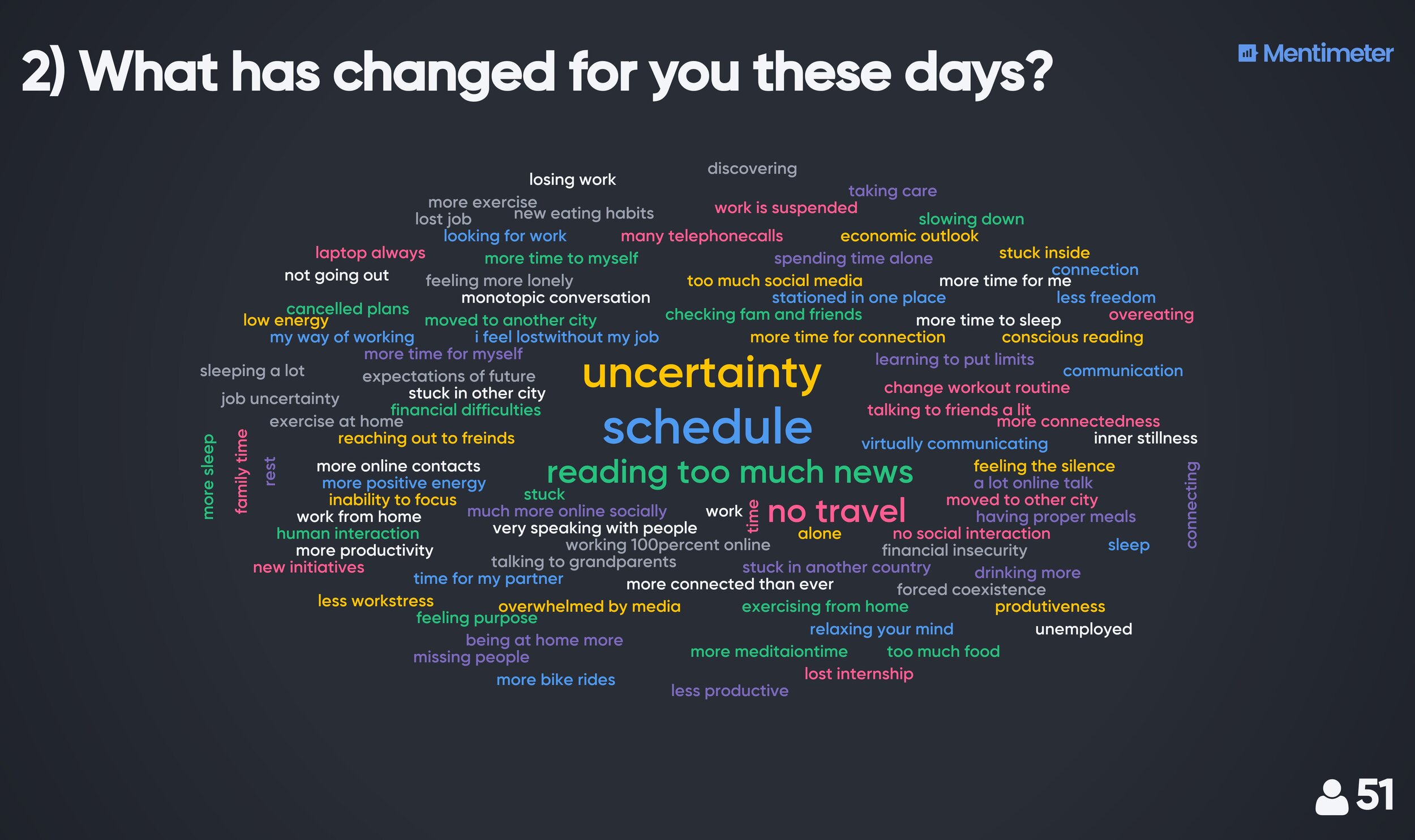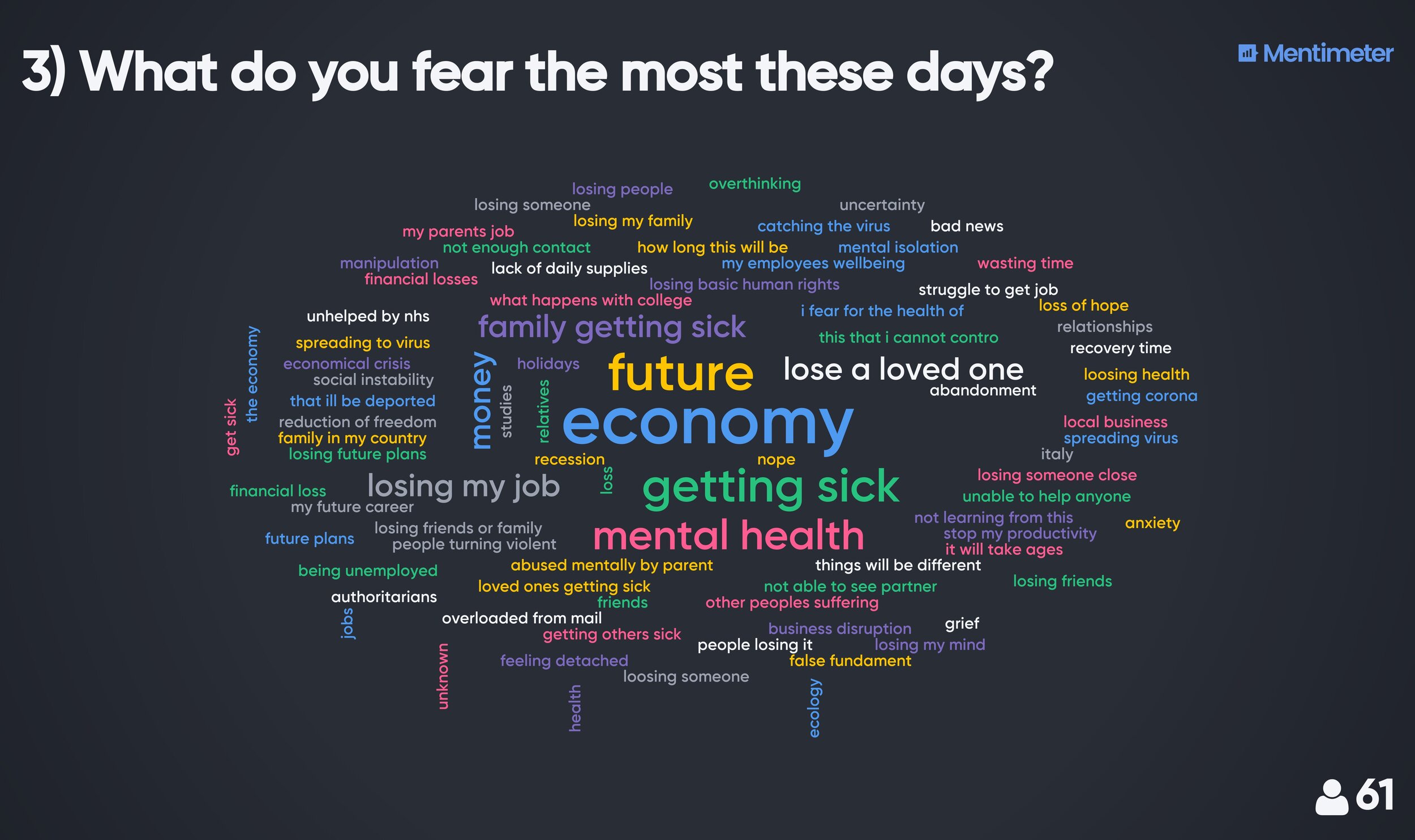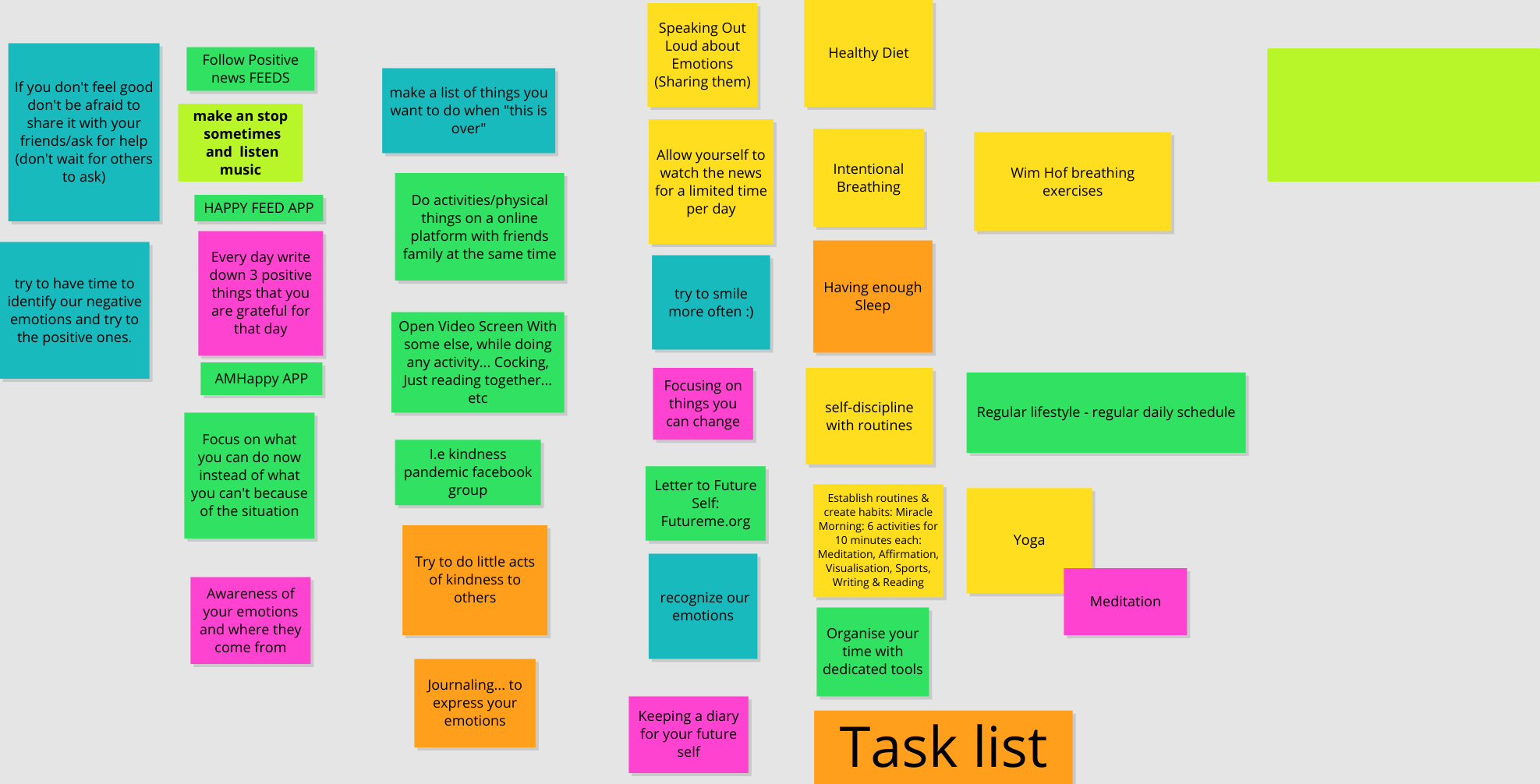An overview of the emotional impact of working from home (WFH)
One year has passed since the World Health Organization declared Covid-19 a pandemic, on the 11th of March 2020. While a lot has changed since then, one challenge is still the same: people are constantly juggling with their emotions in the context of recurring restrictions and social distancing regulations all over the world.
Researchers could not help but study the emotional implications of WFH during the pandemic. So, while our lives have not gotten back to normal, at least we can find some pieces of learning by looking back at the past year, which might help us navigate this time of uncertainty. Here are the main research findings since the pandemic started.
What one year of pandemic has taught us
One year has passed since the World Health Organization declared Covid-19 a pandemic, on the 11th of March 2020. While a lot has changed since then, one challenge is still the same: people are constantly juggling with their emotions in the context of recurring restrictions and social distancing regulations all over the world.
Among all scenarios, being emotional can represent a challenge if you are working from home (WFH) for most of your time. With being emotional we mean the experience of emotions - pleasant and unpleasant - which we most likely all know, as human beings and as remote workers.
Luckily, researchers could not help but study the emotional implications of WFH during the pandemic. So, while our lives have not gotten back to normal, at least we can find some pieces of learning by looking back at the past year, which might help us navigate this time of uncertainty. Here are the main research findings since the pandemic started.
1) An emotional mix
While working from home, you might feel torn between the happiness of working from your sofa and the frustration for being stuck in it. Remember: you are not alone in that. Remote workers tend to have contrasting feelings towards being forced at home. Most people express overall positive emotions (trust, anticipation and joy) connected to WFH - at least according to a data collection made on Twitter (1) . At the same time, research reports a whole range of psychological struggles connected with being stuck at home, among which: feeling more stressed, anxious, nervous, isolated (2) - socially and professionally.
2) The ingredients for your mental wellbeing
As you might have noticed yourself, WFH can be the greatest experience - rolling out of bed just to start your work day on your couch, so cozy - as well as your worst nightmare - also rolling out of bed just to start your work day from your couch, so depressing!
According to a cross-country study run in 2020 (3) , the flavour of your experience depends on different factors in your life. Among these are your individual traits, your support network, the physical space you work from, your eating and sport habits. Staying physically active, eating healthy, having an adequate, ergonomic working space contributes to your mental wellbeing. Also, having a strong support network from your colleagues and your managers seems to make a difference. As being physically isolated might impair the trust within the team, nurturing those work relationships seems to positively impact remote workers’ mental wellbeing.
3) A double-edged sword
It seems very clear that being a remote worker during the pandemic can have quite strong advantages and challenges at the same time. Staying home allows individuals to be more flexible with their schedule - maybe to spend more time with their family, or manage their own working hours and commitments. This might explain the positive feelings that many remote workers seem to hold. On the other hand, WFH also means having more blurry boundaries between work and everything else. When this happens, people tend to feel more stressed and overwhelmed because it seems that one could always get more things done - answer this one more email, finish that presentation, read that article. Flexibility and overwork seem to be two sides of the same coin (4).
For this reason, it is essential to find strategies that allow us to benefit from the opportunities of being a remote worker, while limiting the negative effects which may come along with it. All things considered, here are a few highlights on how individuals and communities are adapting to uncertainty and coping with emotional challenges.
Moving forward: becoming more resilient communities and individuals
According to the last research findings, it seems that the pandemic allowed remote workers to experience both benefits and challenges. On an emotional level, this means that different remote workers might have different emotional experiences, depending on different factors (as we have seen above). So what is the common ground between these different experiences?
One answer to this question is that we have all become more resilient. Psychologists define resilience as the process of adapting well in the face of adversity, trauma, tragedy, threats, or significant sources of stress (5) . Undoubtedly, these are stressful times we are living in. While different people have been differently affected by the change of circumstances, we are all striving to adapt to the new reality. Both as individuals and collectives we have found ourselves in need of regulating our social and emotional systems.
We have learnt to accept that distress and anxiety are normal responses to a situation as threatening and unpredictable as the coronavirus pandemic. At the same time, we have also understood that quarantine measures have a negative impact on mental health, especially when they are not adequately integrated in how individuals make sense of their life. Research investigating resilience suggests that the more in control individuals feel towards a stressful situation, the better they will cope with it. (6) Therefore it is of huge importance to empower individuals and communities with a sense of control.
Companies which have adapted their working methods to implement remote work are an example of how communities engage in regaining control. By doing so they have become more resilient, and less vulnerable to the socioeconomic impacts of the pandemic.
As individuals, a way to move forward is by focusing on four core elements that contribute to our wellbeing: connection, wellness, healthy thinking, and meaning. (7) Good advice on strategies to foster all these elements has been spreaded everywhere. (8) From our side, creating connectedness became a lifestyle. We encourage people everywhere, and especially remote workers, to invest time and energy into building bridges with colleagues, chatting with friends and family, and opening up with someone of trust about life’s struggles.
Nowadays, more than ever before , it is important to prioritize genuine connections and seek trustworthy and compassionate relationships, in which our feelings and needs are validated. And remember: if you ever feel like you are not able to function properly, ask for professional help. All of the above will support us in building our own resilience, allowing us to navigate changes and uncertain times with more ease.
——————————————————————————————-
Article requested by Alreal Consulting and written by Marta Vera-Cruz and Valentina Bianchini from Connecting with Empathy.
Connecting with Empathy supports individuals, teams, and organizations in improving their relationships by shifting their communication style. They facilitate group processes that foster connection, empathy, and the emotional well-being of individuals and groups. In their Facebook page you can find out more about their work.
—————————————————————————————-
References:
Dubey & Tripathy, 2020
Chung, Heejung and Seo, Hyojin and Forbes, Sarah and Birkett, Holly (2020) WORKING FROM HOME DURING THE COVID-19 LOCKDOWN: Changing preferences and the future of work. University of Kent
Xiao, Becerik-Gerber, Lucas & Roll, 2020
Chung, Heejung and Seo, Hyojin and Forbes, Sarah and Birkett, Holly (2020) WORKING FROM HOME DURING THE COVID-19 LOCKDOWN: Changing preferences and the future of work. University of Kent
American Psychological Association. (2020, February 1). Building your resilience. http://www.apa.org/topics/resilience/
Vinkers CH, van Amelsvoort T, Bisson JI, et al. Stress resilience during the coronavirus pandemic. Eur Neuropsychopharmacol. 2020
American Psychological Association. (2020, February 1). Building your resilience. http://www.apa.org/topics/resilience/
For example here: https://www.theguardian.com/lifeandstyle/2021/mar/19/from-keep-fit-to-sex-how-guardian-readers-have-boosted-their-mood-during-the-pandemic
5 Things we understood about our current COVID-19 Corona challenges while facilitating a global online meetup on Emotional Intelligence
We recently hosted an open online session for around 60 leaders, solopreneurs, entrepreneurs and teams from all around the world (more than a 100 registered for the event) on the topic of emotional intelligence and how we are all dealing with the quarantine. Little did we expect what we would discover by facilitating this session.
We recently hosted an open online session for around 60 people from all around the world (more than a 100 registered for the event) on the topic of emotional intelligence and how we are all dealing with the quarantine. Little did we expect what we would discover by facilitating this session.
1. We are left alone in quarantine with our emotions
We started our session by diagnosing our participants and how they had been feeling during these days. The results were shocking. Our greatest giveaway from the crowdsourced answers was that the abrupt suspension of the division between work and personal life had a tremendous toll on our emotional health. If you were neglecting how you felt by escaping to work before, there was no way around now. You were now under quarantine dealing with your emotions and being fed with fearful media. And we discovered that there were not enough outlets and safe spaces to talk about this emotional contagion with empathy and deep listening. Not just for our customers if we represented a business, but also for our colleagues, family and friends.
2. Empathic Listening might be just the pill that the doctor prescribed
Borrowing the concept of working with ‘’a challenge’’ from design thinking, our participants co-created an online canvas of crowdsourced tips to navigate these times. We asked them: how might we improve our self-awareness, self-management, motivational resilience, our empathy and relationships in these times of Corona? The result was as impressive as the process of creation by itself.
Being part of a safe space with individuals from around the world that were dealing with similar struggles opened a gateway for empathy and listening to understand one another, and to realize that our egos are not so alone in this crisis as we thought. Verbalizing our emotions, being aware of our little habits to manage them and finding international commonalities is already a huge step forward towards decreasing our fears and anxieties.
3. Emotions can be trained, balance is conquered every day
We are constantly told that emotions are beyond our control. This cannot be further away from the truth. We learned together that we can train ourselves in our personal and social life to be more aware of what we are feeling and to determine which is the best way to deal with our emotions according to the situation. And this realization becomes especially relevant in these times. We can decide to see the glass half empty or half full. Moreover, it is up to us to help others find their resilience nowadays. But we must first start with ourselves. And this is not a battle easily won from one day to the other. It’s ongoing and it starts with determination.
4. The unspoken privilege of staying home
One participant had a very relevant remark. While we are at home, safe, flattening the curve and dealing with our emotions, out there are many real unsung heroes putting their life on the line for us and for our comfort, like doctors, nurses, taxi drivers, pharmacies and restaurants doing home deliveries. All around the world there are now initiatives to show gratitude to the medical staff. In Italy we listen to serenades from balconies. This gives us hope in humanity again. Because only as a thankful community, beyond our egos, with solidarity, will we find our way to motivate each other and be resilient through these dark times.
5. Creativity can still flourish in times of Corona
At Alreal Consulting we have been generating expertise in consulting and creating sessions and trainings for our clients with a lot of interaction and inclusion. We co-create collaborative activities around the topic of EQ (also known as EI, Emotional Intelligence), we then reflect upon the result and then we apply the key findings to our daily life.The Corona Pandemic hit us hard. We had to reinvent ourselves and going online was the logical step forward. We were uncertain, but we also remembered the reason why we started. The people. And if we were affected, we could only imagine how our community was holding on. So,we did our homework and looked for the best affordable online tools to keep the essence of our methodology.
Zoom gave us a great way to split participants into breakout groups Menti was a great option to crowdsource word maps to diagnose our status quo. Slido helped us keep track of the questions of our over 60 participants. Finally, Conceptboard allowed our community to co-create a digital canvas of tips to improve our emotional intelligence. Bundled up with great facilitation, the tools became magic for live collaboration. We were on the quest to create an online safe space to save human interaction digitally. And it felt so good to do our bit.
During April we will be facilitating more online sessions. The Community and Dialogue initiative is focused on belonging and empathic listening, while our April EQ Innovation Lab will bring more expertise, tools and collaboration around self-awareness, self-management, motivational resilience, empathy and relationships for teams,entrepreneurs and leaders. They can all be found in our website and you are welcome to join us and to spread the word!
Conclusion
Even though these times are without a doubt a big challenge for humanity it is also true that this is the best time to have realistic optimism. We stand on the shore of a sea but there are 3 bridges we can cross to get to the other side, to break the gap between where we are and where we will get, that place we know is out there even if it looks blurry nowadays.
The first one is to realize that we are flooded with emotions both externally and internally but there’s always something we can do to manage the situation. The second one is that even though some things are affecting us now in a negative way, not everything is affected. So, we need to step outside our own needs. And finally, that time is passing, and the future will be different. But as of now, we only have the present to start.
Helping others we help ourselves. Optimism is viral and it promotes innovation.
We shared our experience building a global community around the topic of EQ, but we are very curious to know: what are you doing to adapt your business to the global changes, to have a social impact and to help others do the same? Let us know and let’s start a dialogue!



